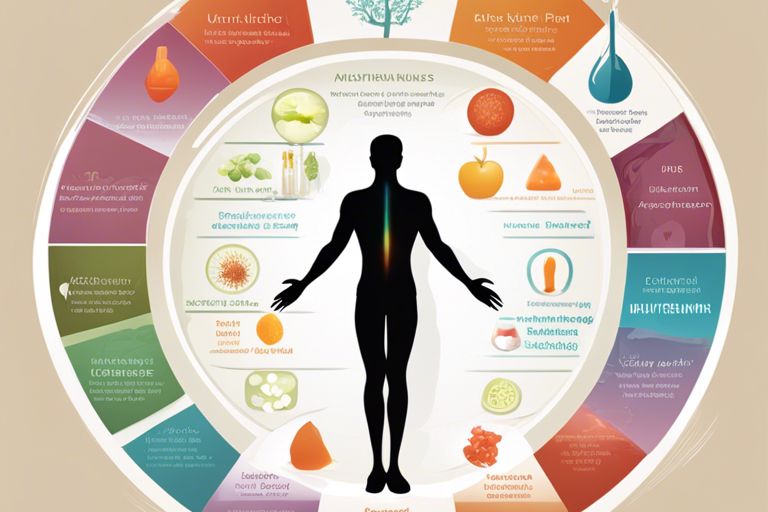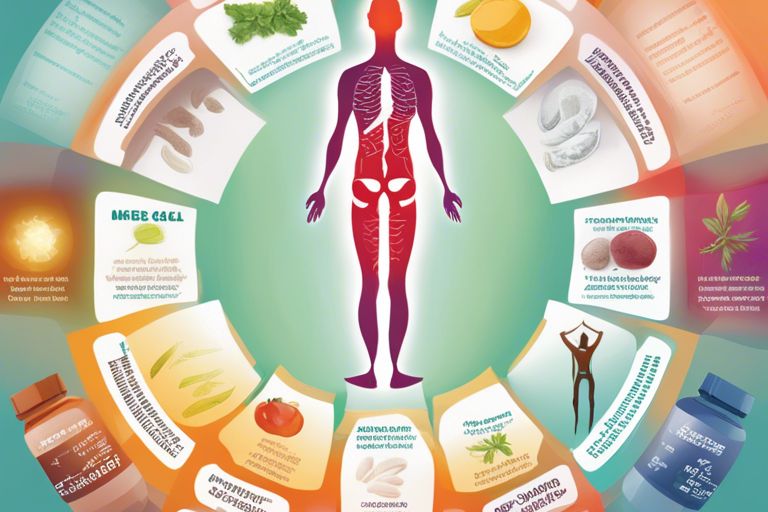Feeling **constant** pain and looking for relief? While there are **many options** out there for managing chronic pain, you may have wondered about the effectiveness of **nutritional supplements**. In this blog post, we’ll explore the role of **nutritional supplements** in chronic pain management and whether they can provide **relief** for your **ongoing discomfort**. If you’re looking for **natural** methods of pain management, keep reading to learn more about the potential benefits of **supplements** in your **journey** towards **pain-free living**.
Understanding Nutritional Supplements
To effectively manage chronic pain, it is important to understand nutritional supplements. These supplements can play a significant role in addressing the underlying causes of chronic pain and helping you find relief.
Definition and Types of Supplements
Nutritional supplements are products designed to provide additional nutrients that may be lacking in your diet. They come in various forms, including vitamins, minerals, amino acids, and herbs, and are available in pill, capsule, liquid, or powder form. Each type of supplement serves a specific purpose to support your overall health and well-being.
- Vitamins: Essential for various bodily functions, vitamins play a crucial role in supporting your immune system, promoting cell growth, and maintaining healthy skin and hair.
- Minerals: Necessary for maintaining proper nerve function, muscle health, and bone strength.
- Amino acids: Known as the building blocks of proteins, amino acids help repair tissues and regulate important bodily functions.
- Herbs: Used in traditional medicine for centuries, herbs offer natural remedies for various health issues, including pain management.
Perceiving the differences between these supplements will help you choose the right ones to address your specific needs.
Role of Supplements in the Body
Supplements play a vital role in ensuring your body receives the essential nutrients it needs to function optimally. They can help fill gaps in your diet, especially if you have dietary restrictions or struggle to consume a wide variety of foods. Additionally, certain supplements have been shown to reduce inflammation, support tissue repair, and improve overall musculoskeletal health, which can directly impact chronic pain conditions.

The Efficacy of Nutritional Supplements for Chronic Pain
The use of nutritional supplements for chronic pain management has gained attention in recent years as an alternative to traditional pain medications. You may have come across articles or advertisements promoting various supplements as a natural way to alleviate your chronic pain. But do these supplements actually work? Can they provide the relief you desperately seek? Let’s dive into the efficacy of nutritional supplements for chronic pain management.
Scientific Evidence and Clinical Studies
The 7 natural supplements that might relieve back, joint, and muscle pain have been the subject of scientific research and clinical studies. Studies have shown that certain supplements such as turmeric, fish oil, and glucosamine have anti-inflammatory properties that may help reduce pain and improve joint function. However, it’s important to note that the evidence supporting the use of supplements for chronic pain is still limited, and more rigorous clinical trials are needed to confirm their efficacy.
Popular Supplements for Pain Relief
Among the most popular nutritional supplements for pain relief are turmeric, omega-3 fatty acids, glucosamine, chondroitin, and methylsulfonylmethane (MSM). These supplements are purported to have anti-inflammatory and analgesic properties that may help alleviate your chronic pain. However, it’s crucial to consult with your healthcare provider before adding any new supplement to your regimen. Some supplements may interact with medications or have potential side effects that could adversely affect your health.
Integrating Supplements with Traditional Pain Management
After considering the potential benefits of integrating nutritional supplements into your chronic pain management plan, it’s important to understand how these supplements can work alongside traditional pain management methods. According to a recent study published in the Journal of Pain Research, certain nutritional supplements have shown promise in managing neuropathic pain, which can be a challenging type of chronic pain to treat. You can learn more about these findings in the article Nutritional Supplements for the Treatment of Neuropathic Pain.
Complementary Approaches to Pain Treatment
When integrating nutritional supplements with traditional pain management, it’s important to consider complementary approaches that can enhance their effectiveness. For example, incorporating physical therapy, acupuncture, or mindfulness-based stress reduction techniques into your pain management plan can work in conjunction with nutritional supplements to provide comprehensive relief. Additionally, integrating supplements with a healthy diet and regular exercise routine can further support your overall well-being, potentially reducing the impact of chronic pain on your daily life.
Considerations and Precautions
While nutritional supplements may offer potential benefits for chronic pain management, it’s essential to approach their use with caution. Some supplements may interact with medications or exacerbate certain health conditions, so it’s crucial to consult with your healthcare provider before adding any new supplements to your regimen. When considering supplements, ensure they are from reputable sources and have undergone third-party testing for quality and purity. Remember, supplements should be viewed as part of a holistic approach to pain management and should never replace traditional medical treatment prescribed by your healthcare provider.
Conclusion
To wrap up, while nutritional supplements may offer some relief for chronic pain management, it is important to consult with a healthcare professional before adding them to your regimen. Your doctor can provide personalized recommendations based on your individual health status and potential interactions with any medications you may be taking. Additionally, focusing on a balanced diet and overall healthy lifestyle habits can also play a crucial role in managing chronic pain effectively. Remember to prioritize open communication with your healthcare team to ensure the safest and most effective approach to addressing your chronic pain.


